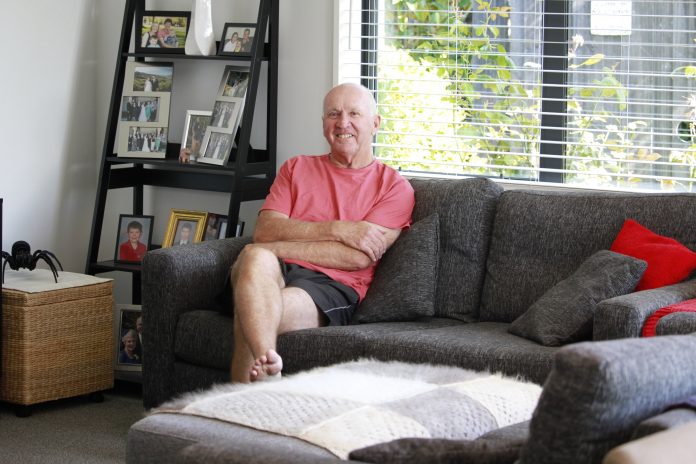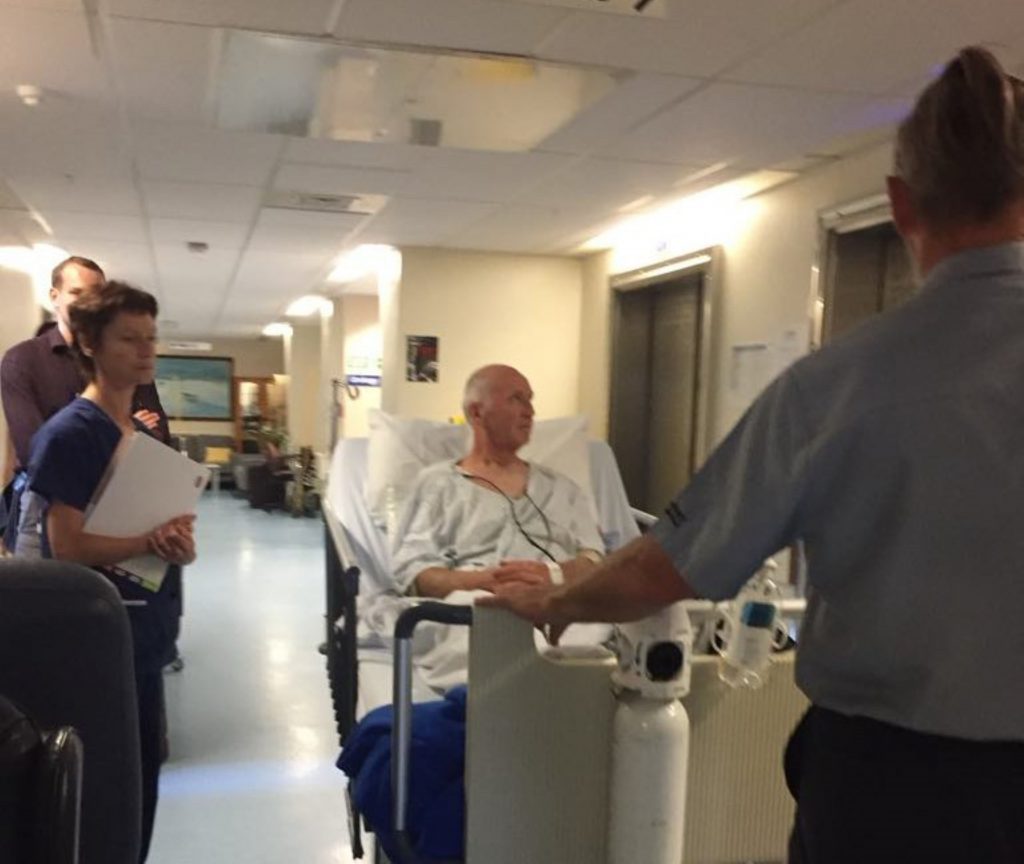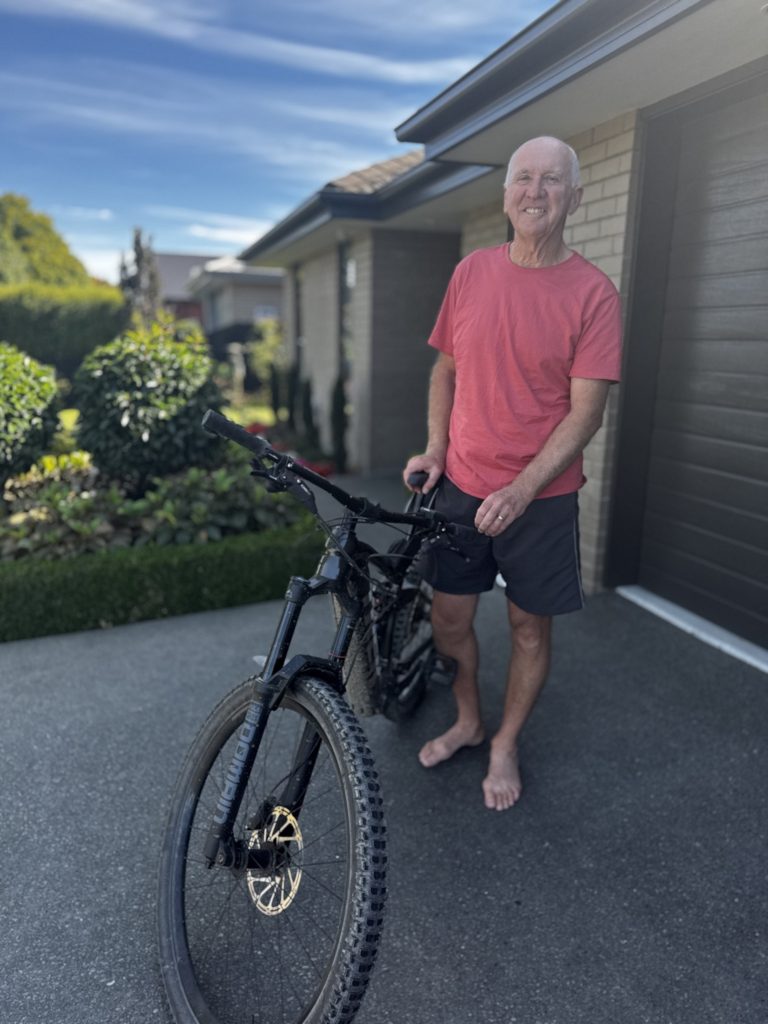
The chances of surviving a cardiac arrest outside of hospital are just 11 per cent, the latest data shows.
David Bishop, 66 of Ashburton, has been one of the lucky ones. He was resuscitated after having a cardiac arrest in 2019.
Susan Sandys reports.
David Bishop was playing netball at the EA Networks Centre when his feet felt heavy and he started to feel sick.
‘‘I thought I had something to eat that didn’t agree with me,’’ he said.
It was a Wednesday evening, November 6, 2019.
Aged 61 at the time, David was playing as a member of his workplace Brophy Knight’s social netball team.
‘‘They had me at centre because they said I was the fittest in the team.’’
And fit he was. Outside of his job as an accountant, he not only enjoyed social netball, but also mountain biking, tennis, pickle ball, and golf.
‘‘I was probably fitter than when I used to play rugby back in the day.’’
During a break in the game, he went into the change rooms and vomited.
As he sat on the floor near the toilet, sweat poured off him.
Wife Karen was there as well; the pair left early.
As they were arriving home, Karen asked her husband if he had chest pain. He did not, but felt a tightness.
That’s when the couple started to realise he may be having a heart attack or cardiac arrest.

Inside, Karen dialled 111 and talked to Hato Hone St John.
Hearing his wife say their address on the phone is the last thing David remembers until minutes later when he was on the floor of his bedroom and paramedics were giving him CPR.
‘‘My brain was saying ‘I’m back, you can stop’.’’
But he couldn’t voice the words, and the painful chest compressions briefly continued.
In the moments lost to memory, David had died. He had walked into his bedroom, lay on his bed, his heart stopped beating. It was a cardiac arrest.
While people generally remain conscious and breathing in a heart attack, which occurs when an artery becomes blocked, in a cardiac arrest the heart stops pumping blood, so breathing stops and the person loses consciousness.
Karen had done chest compressions and followed the emergency operator’s instructions to get him on to the floor, prior to the Ashburton Volunteer Fire Brigade and St John paramedics arriving.
With their CPR expertise and a defibrillator, they were able to bring him back and get him to hospital.
Later, as David recovered in Christchurch, a cardiologist looked at his diet and lifestyle.
He took into account a range of factors, including that David drank little alcohol, had never smoked, was not on any medications, and had no family history of heart disease.
‘‘He just basically said ‘You are very unlucky it happened, but very lucky you got through it’.’’

David said doctors had found just one small artery blockage, of 40 per cent, and inserted a stent.
‘‘I thought ‘How many people are walking around with a lot worse than that and don’t know it?’.’’
David returned to work, but only to tidy up files and farewell his colleagues.
While the cause is officially a mystery, David now believes he knows what it is.
He said during a cardiac rehabilitation session he had learned stress could have a long-lasting effect on the heart.
This had made him think of his previous lifelong work programme, where there had been three to four intensive months of the year, each day with a deadline.
‘‘It wasn’t until afterwards looking back, I realised how much stress I was under during those times,’’ David said.
David had always planned to retire early, and was only a few months off this when he had his cardiac arrest.
Today the much-loved granddad enjoys life more than ever. He has got back to mountain biking, and he and Karen have taken up petanque.
‘‘I know I’m lucky to be here,’’ he said.
Signs of cardiac arrest:
* Chest pain.
* A feeling of tightness, pressure or squeezing in the chest.
* Shortness of breath.
* Dizziness, clammy skin, palpitations and fatigue.
Learn CPR, save a life
Learn CPR, that’s the message from Hato Hone St John, as the incidents of outof-hospital cardiac arrest (OHCA) increase.
The latest national report detailing incidents in the year to June 30, 2024, reveals 2547 people were treated for cardiac arrest. It was 3.6 per cent up on the previous year.
Twenty-four per cent survived to hospital arrival, and 11 per cent survived 30 days post-event.
The most common place for an OHCA to occur is in a person’s home (72 per cent), followed by a public area (15 per cent) which includes the workplace, street, shopping centre or similar. Eightythree per cent of witnessed OHCA received bystander CPR.
Performing CPR can help a patient survive until emergency services arrive.
A person’s chances of survival drops 10 to 15 per cent for every minute a cardiac arrest goes by without CPR or defibrillation (using an automated external defibrillator) – rates that dramatically improve the sooner CPR begins.
Deputy chief executive clinical services Dr Damian Tomic said anyone could learn CPR.
‘‘And knowing how to do it could save a life.”
St John offers free CPR and automated external defibrillator training.
In the year ending June 30 last year, St John delivered 875 one-hour sessions to 39,863 people across the country.
Í To sign up for a full first aid course visit stjohn.org.nz/ firstaid



